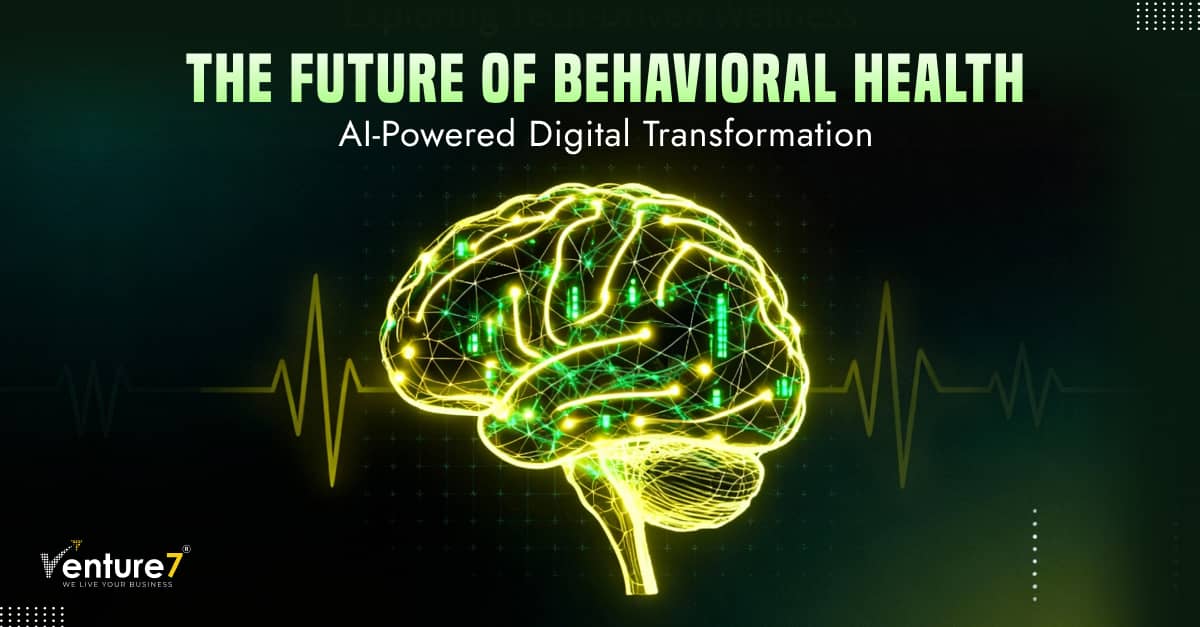The behavioral health sector is undergoing a profound shift. Advances in artificial intelligence (AI) are driving AI digital transformation behavioral health, enabling providers to deliver personalized, efficient, and data-driven care. Today, AI in behavioral healthcare is no longer optional—it is a strategic necessity for organizations seeking better patient outcomes, operational efficiency, and scalable solutions.
What Is AI Digital Transformation in Behavioral Health?
AI digital transformation in behavioral health refers to integrating AI technologies into every facet of behavioral healthcare. This includes enhancing clinical decision-making, automating administrative workflows, and leveraging behavioral health analytics for proactive care.
By using AI, providers can analyze large volumes of structured and unstructured patient data—like EHRs, clinical notes, and patient-reported outcomes—to identify patterns, predict risks, and optimize treatment pathways. This represents a shift from reactive treatment models to precision-driven behavioral healthcare powered by AI.
Key Applications of AI in Behavioral Healthcare
1. Predictive Analytics for Early Intervention
Predictive analytics is a core component of AI in behavioral healthcare. By analyzing historical patient data and behavioral trends, AI algorithms can forecast mental health risks before they escalate.
Machine learning models can detect early signs of depression, anxiety, or substance use disorders, enabling clinicians to intervene proactively. Early identification reduces hospitalizations, improves treatment adherence, and enhances patient outcomes.
2. EHR Automation for Efficiency
Managing electronic health records manually is resource-intensive. AI-powered EHR automation streamlines documentation, coding, and data management. This reduces errors, ensures compliance, and allows clinicians to dedicate more time to patient care.
Automation also helps healthcare organizations scale efficiently, improve operational resilience, and achieve measurable cost savings—all critical for behavioral health providers undergoing AI digital transformation.
3. AI Therapy Tools for Personalized Care
AI therapy tools are revolutionizing patient engagement and personalized treatment. Virtual therapy platforms, AI chatbots, and digital therapeutics provide continuous support outside traditional clinic visits.
These AI-powered solutions adapt to patient progress in real-time, delivering personalized interventions, exercises, and guidance. The outcome is higher patient adherence, increased engagement, and improved mental health results.
4. Behavioral Health Analytics for Data-Driven Insights
Behavioral health analytics powered by AI allows organizations to measure treatment effectiveness, monitor patient progress, and identify operational inefficiencies.
Leaders can leverage these insights to optimize resource allocation, design evidence-based programs, and maximize ROI. Analytics-driven approaches ensure that AI digital transformation in behavioral health delivers measurable clinical and operational benefits.
Strategic Benefits of AI Digital Transformation in Behavioral Health
Enhanced Patient Outcomes
AI enables precision care tailored to each patient’s needs. Predictive analytics and real-time monitoring help prevent crises and ensure timely interventions, improving recovery rates and satisfaction.
Operational Excellence
Through EHR automation and AI-driven workflow management, organizations reduce administrative burden, improve clinician productivity, and streamline care delivery.
Expanded Access to Care
AI therapy tools break down geographical and accessibility barriers. Patients can access personalized behavioral health services remotely, enhancing equity and care availability.
Data-Driven Decision Making
With behavioral health analytics, organizations gain actionable insights into patient trends, treatment effectiveness, and program performance, supporting strategic decision-making and continuous improvement.
Overcoming Challenges in AI Adoption
Even as AI in behavioral healthcare offers opportunities, organizations must address:
- Data Privacy & Security: AI systems must comply with HIPAA and other privacy regulations.
- Bias & Equity: Algorithms need careful design and continuous evaluation to prevent biased treatment recommendations.
- Integration with Clinical Workflows: AI should complement, not replace, human expertise. Training and workflow alignment are essential for adoption.
A thoughtful approach ensures AI enhances care delivery without compromising ethics or quality.
Future Trends in AI-Enabled Behavioral Healthcare
- Virtual Mental Health Assistants – AI chatbots providing real-time support and clinician referrals.
- Wearable Integration – IoT devices feeding real-time physiological and behavioral data into predictive models.
- Advanced Predictive Modeling – AI analyzing multimodal data, including voice, text, and biometric signals.
- Hyper-Personalized Care Pathways – AI designing dynamic, individualized treatment plans combining therapy, medication, and lifestyle interventions.
Why Behavioral Health Providers Must Prioritize AI
Healthcare organizations embracing AI digital transformation behavioral health can achieve:
- Reduced operational costs via automation
- Improved patient outcomes with predictive and personalized interventions
- Increased patient engagement and satisfaction
- Strategic advantage in a technology-driven market
The question is no longer whether AI should be implemented—it is how fast organizations can adopt AI to transform care delivery.
Conclusion
The integration of AI in behavioral healthcare is a paradigm shift. Through EHR automation, behavioral health analytics, and AI therapy tools, providers can move from reactive care to precision-driven, proactive behavioral health management.
Forward-looking organizations adopting AI digital transformation in behavioral health will improve outcomes, streamline operations, and establish themselves as leaders in a data-driven healthcare ecosystem.
AI-powered behavioral health is the future. The time to act is now.





